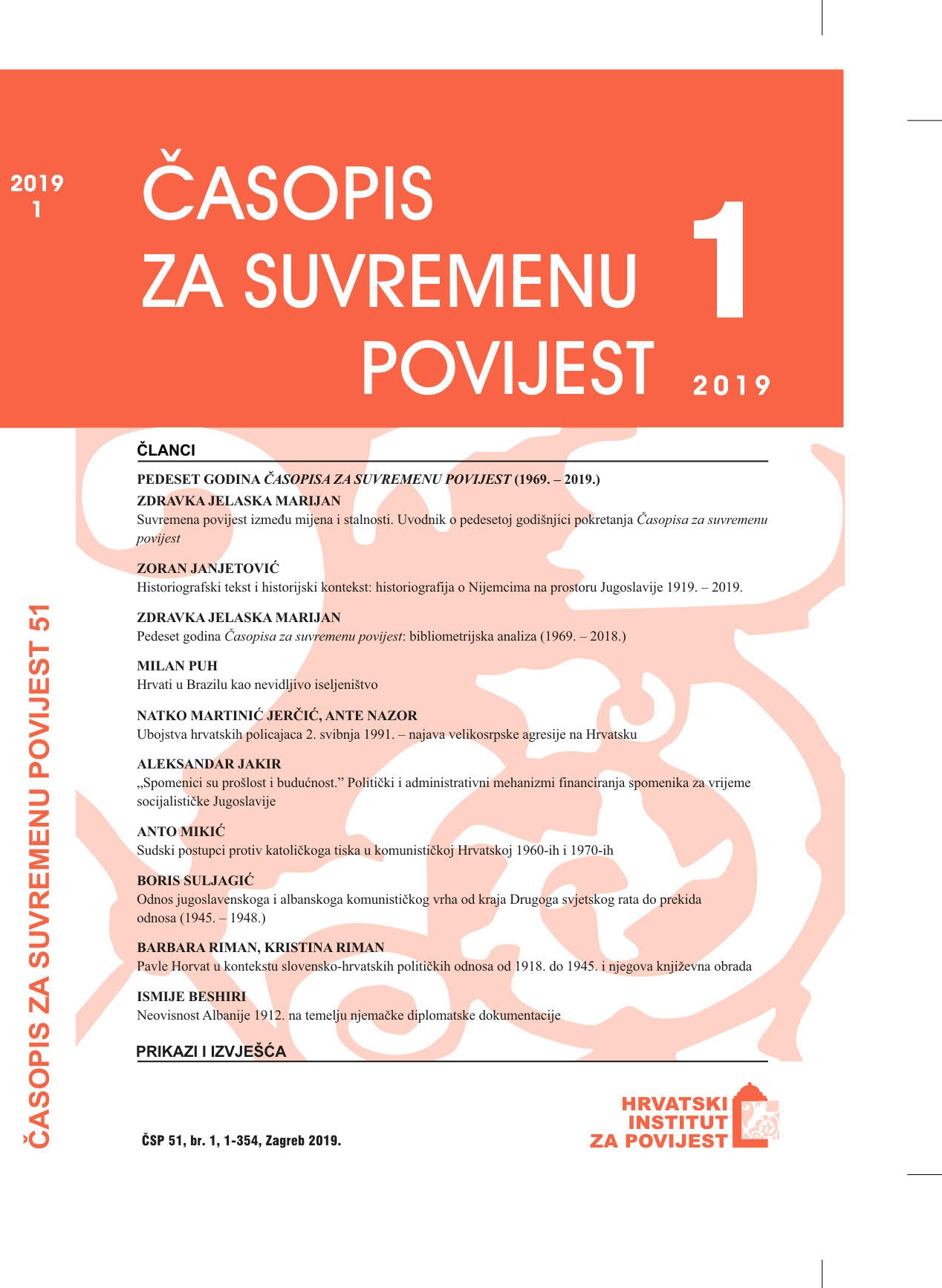Odnos jugoslavenskoga i albanskoga komunističkog vrha od kraja Drugoga svjetskog rata do prekida odnosa (1945. – 1948.)
Relations between the Yugoslav and Albanian Communist Leadership from the End of World War II to the Break-up of Relations (1945–1948)
Author(s): Boris SuljagićSubject(s): History, Diplomatic history, Political history, WW II and following years (1940 - 1949), History of Communism
Published by: Hrvatski institut za povijest
Keywords: Albanian communists; Yugoslav communists; economic cooperation; military cooperation; economic plan; conflicts;
Summary/Abstract: The article presents the relationship between the leaders of the Communist Party of Yugoslavia and the leaders of the Communist Party of Albania from the end of World War II till the break-up of relations of the two, namely from the spring of 1945 till mid-1948. This relationship had been of crucial importance in the mentioned period since the two communist parties had totalitarian power and control over their respective countries. Nevertheless, the Albanian communists were junior partners in this close cooperation. The most important fields of cooperation were the economy and military, where Albanians were supposed to receive the help and support of Yugoslavs, and be obedient in return. The Yugoslav side demonstrated a full control over Albanian economic policy by the rejection of the Albanian economic plan in the spring of 1947. Such economic plans were the tools of communists in socialist countries that allowed them to rule their countries and wield overwhelming influence over the people. Having insight into books and articles concerning the topic, the author has discovered that some questions have not yet been fully examined. The archival fonds of the representative of the Yugoslav communists in Albania, Savo Zlatić, have not been used. Furthermore, the sheer volume of the Albanian discontent as to how the Yugoslavs had helped them has not been established so far. Therefore, the aim of this article is to compare different sources and find as many unresolved questions as possible. The topic is politically sensitive and shows how much we may learn about the political history of the 20th century or, in other words, how delicate research about political history may be, given the lack of many studies that would examine myriad relevant topics and thus prepare the conditions to make syntheses about this topic as precise and complete as possible. The reports and writings of Savo Zlatić open up the world of misunderstandings and conflicts between the two countries and instil doubts as to whether these conflicts had something to do with differences between the peoples of the two countries, differences that the Marxist-Leninist way of thinking and approach was not capable of dealing with.
Journal: Časopis za suvremenu povijest
- Issue Year: 51/2019
- Issue No: 1
- Page Range: 213-231
- Page Count: 19
- Language: English, Croatian

